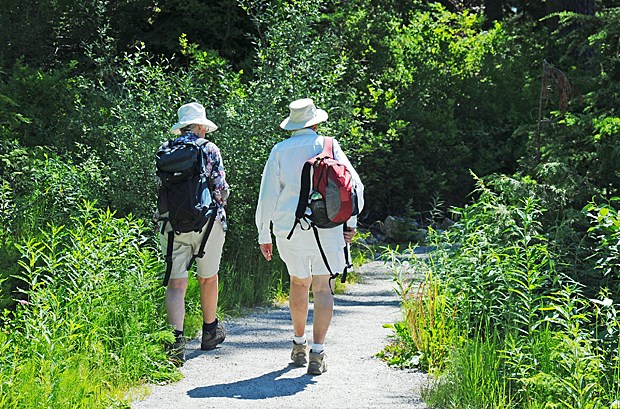Access and ability are being given special attention across Canada from May 26 to June 1.
According to the national website for National AccessAbility Week: “This is a time when accessibility and inclusion is promoted across communities and workplaces and a time to celebrate the contributions of Canadians with disabilities. It is also an opportunity to recognize the efforts of Canadians who are actively removing barriers and ensuring persons with disabilities have an equal chance to participate in all aspects of Canadian society.”
Accessibility is an issue for seniors as many cope with disabilities as a natural part of aging and these disabilities can impede their ability to be connected to community and to age in place in their home. Around 43 per cent of seniors aged 65 and over have a disability, or there are more than 1.76 million Canadians aged 65 and over who are living with one, according to data available on the Canadian government’s website.
Seniors may experience a number of disability issues including hearing and eyesight loss, mobility issues (the major issue for seniors), agility issues, and diseases which might prohibit full participation in community, such as incontinence, cognitive decline, rheumatism and arthritis. The latter was reported on as the cause of more than 30 per cent of all mobility and agility disabilities.
While developing a disability can perhaps be an inevitability for aging adults, barriers that could be ameliorated continue to exist. At a Seniors on the Go event held at the North Vancouver City Library, co-sponsored by the library and Lionsview Seniors’ Planning Society, the following question was asked: How easy is it for seniors to get around the North Shore safely and effortlessly, disabled or not? Not so easy said the seniors.
Seniors spoke about a lack of sidewalks, dangerous intersections, the speed and noise of vehicles, poor lighting, and obstacles on sidewalks such as expanded patio areas, and sandwich boards. Seniors complained about curb downs (dips in the curbs at crosswalks) as a problem for people who are sight impaired and the slow clearing of snow from these areas and off sidewalks which make them hazardous for people with mobility issues.
They were concerned about a lack of benches in some areas and noted that when there were benches there was a lack of covers or shelters from the weather, which made getting out and moving all the more problematic.
They also talked about poor transportation options and issues with bus availability and accessibility. They appreciated social spaces for people to congregate, but shady trees along walkways would also be appreciated, both as protection from the sun and the rain. Seniors were concerned that too much emphasis is being given to the needs of bike riders, and not enough to the availability and safety of walking areas, especially during inclement weather in the months of October to May.
Other barriers that might prevent seniors from fully participating in community or aging in place include inadequate or unaffordable housing, inaccessible public spaces such as buildings without elevators, ramps and easy to use doors, homes with inadequate supports for seniors and, probably most importantly, peoples’ awareness of the issues and concerns of that people living with disabilities have.
On a positive note, Pam Horton, a senior with a disability who sits on the City Seniors Action Table Committee, noted that while there are still frustrations about the ignorance displayed by some, awareness seems to be improving.
“I feel more comfortable that awareness is improving – young people are more responsive to our needs. They hold open doors, give up their seat on the bus and make room for us. In my experience I feel that there is a dramatic improvement in the physical environment, transit, sidewalks and building accessibility.”
There are several groups on the North Shore that are actively working on issues for the disabled, including those which deal with mental health, physical health, legal and financial resources and seniors’ centres. Many of these organizations can be found in the 2019 Seniors Directory published by the North Shore News and North Shore Community Resources Society (for a copy call 604-982-3302 or drop into a seniors’ centre).
The North Shore Advisory Committee on Disability Issues provides a forum for discussion of issues affecting people with disabilities, they formulate proposals and make recommendations to the North Shore municipalities, which can then strive to provide residents with disabilities with an accessible community, free of physical and social barriers.
The Seniors Action Tables, located across the North Shore, work on age-friendly issues which lead to a more accessible community to live in for seniors who may or may not have a disability.
The libraries provide a service for the visually impaired and homebound seniors and don’t forget about technological devices that might improve seniors’ lives at home – therefore creating an environment for aging in place.
During the upcoming National AccessAbility Week, let’s acknowledge the challenges seniors and others with disabilities face, and celebrate the great work being done on their behalf.
Margaret Coates is the co-ordinator of Lionsview Seniors’ Planning Society. Ideas for future columns are welcome. Email: [email protected]



